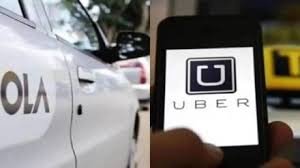
One-day blackout on app-based taxi services; Ola, Uber drivers determined to reach out to PM
Mumbai, October 7, 2025 ΓÇô A one-day strike will be observed on October 9 on app-based taxi services plying on Mumbai's congested roads. Drivers of major companies like Ola, Uber and Rapido have come together to take the decision to protest, complaining about low wages, irregular regulations and rising costs. Leaders of the drivers' associations said that the strike is to draw the attention of Prime Minister Narendra Modi so that the central government takes immediate steps to resolve the problems in this sector. Since this service will be closed for lakhs of passengers in Mumbai, the city's traffic is likely to be affected.
The decision to call off the strike was taken at a joint meeting of the Mumbai Taxi Drivers' Association and the App-Based Taxi Drivers' Federation. Bablu Bhosale, head of the organization, said, "We have been falling prey to the loot of these companies for years. While we are earning only Rs 10 per kilometer, fuel prices have skyrocketed. When petrol becomes expensive, the companies put the burden on us, but our demands are not being heard. This bandh is our last attempt. If the central government does not pay attention, we are ready for a long-term protest." Bhosale's statement has received strong support among the drivers, and the bandh will be observed in Mumbai, Pune, Nagpur and Thane cities as well.
What are the demands? The core of the drivers' complaints
The main demands of the drivers are as follows:
Wage increase: Currently, they earn Rs 8 to 12 per kilometer, which is not enough. They want a guarantee of at least Rs 20 per kilometer.
Amendment of regulations: According to the guidelines issued by the central government in 2016, app companies are required to provide insurance, pension and safety facilities for drivers. However, there are allegations that these rules are being violated.
Expense compensation: Companies should provide subsidies to drivers by considering fuel, maintenance and interest.
Government intervention: The Prime Minister's Office should set up a special committee to address the issue in this area and take a decision within 30 days.
Behind these demands is the story of the daily struggle of drivers. One driver, who did not wish to be named, said, "Even though I am on the road for 14 hours a day, I cannot earn more than Rs 25,000 a month. How will I meet my rent, children's education and medical expenses? Companies only make profits, we get nothing." This is the plight of hundreds of such drivers, who have now taken to the streets.
How will Mumbai's traffic be affected?
Mumbai is the most congested city in the country, with lakhs of commuters relying on app-based taxi services. This service is a lifeline, especially for working people, students and tourists. The ban will shut down apps like Ola, Uber and Rapido from 6 am to 10 pm. This will:
Stress on trains and buses: Commuters in Chembur, Andheri and Bandra will have to struggle for alternative vehicles.
Metro and auto rickshaw growth: Metro service usage will increase, but it will not reach all areas.
Alternative plan: Some drivers have suggested using traditional cabs or private vehicles, and the municipal corporation has expressed the possibility of running additional buses.
Mumbai Police and the traffic department have advised drivers to protest peacefully and have deployed teams to maintain discipline on the roads. However, if the protests intensify, there is a risk of traffic jams at major intersections in the city.
Background: Years of struggle
Mumbai, October 7, 2025 ΓÇô A one-day strike will be observed on October 9 on app-based taxi services plying on Mumbai's congested roads. Drivers of major companies like Ola, Uber and Rapido have come together to take the decision to protest, complaining about low wages, irregular regulations and rising costs. Leaders of the drivers' associations said that the strike is to draw the attention of Prime Minister Narendra Modi so that the central government takes immediate steps to resolve the problems in this sector. Since this service will be closed for lakhs of passengers in Mumbai, the city's traffic is likely to be affected.
The decision to call off the strike was taken at a joint meeting of the Mumbai Taxi Drivers' Association and the App-Based Taxi Drivers' Federation. Bablu Bhosale, head of the organization, said, "We have been falling prey to the loot of these companies for years. While we are earning only Rs 10 per kilometer, fuel prices have skyrocketed. When petrol becomes expensive, the companies put the burden on us, but our demands are not being heard. This bandh is our last attempt. If the central government does not pay attention, we are ready for a long-term protest." Bhosale's statement has received strong support among the drivers, and the bandh will be observed in Mumbai, Pune, Nagpur and Thane cities as well.
What are the demands? The core of the drivers' complaints
The main demands of the drivers are as follows:
Wage increase: Currently, they earn Rs 8 to 12 per kilometer, which is not enough. They want a guarantee of at least Rs 20 per kilometer.
Amendment of regulations: According to the guidelines issued by the central government in 2016, app companies are required to provide insurance, pension and safety facilities for drivers. However, there are allegations that these rules are being violated.
Expense compensation: Companies should provide subsidies to drivers by considering fuel, maintenance and interest.
Government intervention: The Prime Minister's Office should set up a special committee to address the issue in this area and take a decision within 30 days.
Behind these demands is the story of the daily struggle of drivers. One driver, who did not wish to be named, said, "Even though I am on the road for 14 hours a day, I cannot earn more than Rs 25,000 a month. How will I meet my rent, children's education and medical expenses? Companies only make profits, we get nothing." This is the plight of hundreds of such drivers, who have now taken to the streets.
How will Mumbai's traffic be affected?
Mumbai is the most congested city in the country, with lakhs of commuters relying on app-based taxi services. This service is a lifeline, especially for working people, students and tourists. The ban will shut down apps like Ola, Uber and Rapido from 6 am to 10 pm. This will:
Stress on trains and buses: Commuters in Chembur, Andheri and Bandra will have to struggle for alternative vehicles.
Metro and auto rickshaw growth: Metro service usage will increase, but it will not reach all areas.
Alternative plan: Some drivers have suggested using traditional cabs or private vehicles, and the municipal corporation has expressed the possibility of running additional buses.
Mumbai Police and the traffic department have advised drivers to protest peacefully and have deployed teams to maintain discipline on the roads. However, if the protests intensify, there is a risk of traffic jams at major intersections in the city.
Background: Years of struggle
The decision to call off the strike was taken at a joint meeting of the Mumbai Taxi Drivers' Association and the App-Based Taxi Drivers' Federation. Bablu Bhosale, head of the organization, said, "We have been falling prey to the loot of these companies for years. While we are earning only Rs 10 per kilometer, fuel prices have skyrocketed. When petrol becomes expensive, the companies put the burden on us, but our demands are not being heard. This bandh is our last attempt. If the central government does not pay attention, we are ready for a long-term protest." Bhosale's statement has received strong support among the drivers, and the bandh will be observed in Mumbai, Pune, Nagpur and Thane cities as well.
What are the demands? The core of the drivers' complaints
The main demands of the drivers are as follows:
Wage increase: Currently, they earn Rs 8 to 12 per kilometer, which is not enough. They want a guarantee of at least Rs 20 per kilometer.
Amendment of regulations: According to the guidelines issued by the central government in 2016, app companies are required to provide insurance, pension and safety facilities for drivers. However, there are allegations that these rules are being violated.
Expense compensation: Companies should provide subsidies to drivers by considering fuel, maintenance and interest.
Government intervention: The Prime Minister's Office should set up a special committee to address the issue in this area and take a decision within 30 days.
Behind these demands is the story of the daily struggle of drivers. One driver, who did not wish to be named, said, "Even though I am on the road for 14 hours a day, I cannot earn more than Rs 25,000 a month. How will I meet my rent, children's education and medical expenses? Companies only make profits, we get nothing." This is the plight of hundreds of such drivers, who have now taken to the streets.
How will Mumbai's traffic be affected?
Mumbai is the most congested city in the country, with lakhs of commuters relying on app-based taxi services. This service is a lifeline, especially for working people, students and tourists. The ban will shut down apps like Ola, Uber and Rapido from 6 am to 10 pm. This will:
Stress on trains and buses: Commuters in Chembur, Andheri and Bandra will have to struggle for alternative vehicles.
Metro and auto rickshaw growth: Metro service usage will increase, but it will not reach all areas.
Alternative plan: Some drivers have suggested using traditional cabs or private vehicles, and the municipal corporation has expressed the possibility of running additional buses.
Mumbai Police and the traffic department have advised drivers to protest peacefully and have deployed teams to maintain discipline on the roads. However, if the protests intensify, there is a risk of traffic jams at major intersections in the city.
Background: Years of struggle

.jpg)






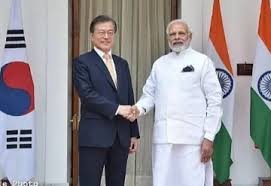
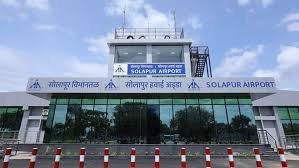
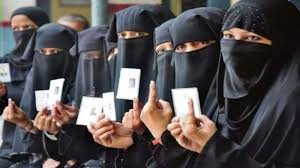
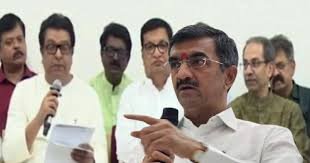
.png)
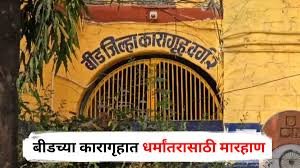
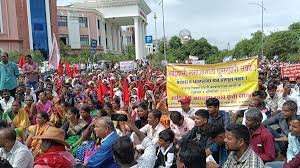
.png)
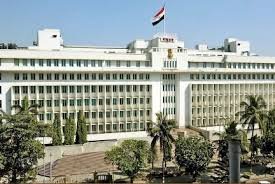
.png)
